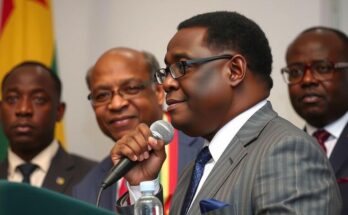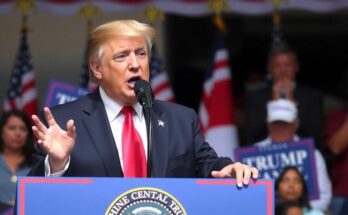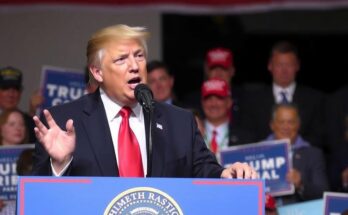With elections nearing, economic issues dominate Ghana’s political landscape. Vice President Bawumia of the NPP and former President Mahama of the NDC are the primary candidates attempting to address voters’ dissatisfaction. Both emphasize economic recovery while stressing the importance of transparency and peace in the electoral process. Voter expectations have risen, impacting their decisions in the upcoming polls.
As the election approaches in Ghana, with over 18 million eligible voters, economic issues stand at the forefront of public concern. Eleven candidates are competing, but the most significant contest is between Vice President Mahamadu Bawumia, representing the New Patriotic Party (NPP), and former President John Dramani Mahama of the National Democratic Congress (NDC). Mahama, making a third attempt after previous defeats in 2016 and 2020, aims to reclaim the presidency with a focus on economic recovery. Bawumia, seeking to maintain the NPP’s control, emphasizes digital innovation to address economic struggles.
With the electoral commission facing scrutiny regarding transparency, its chairperson, Jean Mensa, assures that peaceful and credible elections are a priority. Amidst rising public disillusionment due to unmet promises, many citizens express their frustration over development neglect, leading to discussions of boycotts in communities lacking essential services like electricity. This widespread disappointment conveys a clear message to politicians: fulfilling promises is crucial for securing electoral support.
Both candidates have tailored their campaigns around Ghana’s economic revival, with Bawumia pledging to equip one million youths with digital skills, while Mahama advocates for a 24-hour economy to stimulate job creation. Voters’ skepticism about the claimed job growth under the current administration puts added pressure on both contenders to present valid solutions.
In addition to economic topics, the atmosphere surrounding the elections remains hopeful for peace, as both candidates recently signed a peace pact to ensure a fair electoral process. This commitment to democracy underscores their responsibility to maintain national stability during this crucial time. The election is set for Saturday, with polling stations open across the country.
Ghana’s political landscape demands accountability from leaders as they navigate issues surrounding economic recovery, public trust, and electoral integrity. Those eligible to vote will have the opportunity to influence the nation’s leadership based on their assessments of the candidates’ promises and actions related to the economy and community development.
The upcoming Ghanaian elections see economic issues taking center stage among voters’ concerns. With a history of unfulfilled promises leading to voter disappointment, the electoral landscape is shaped by citizens’ demand for accountability. The presence of Vice President Bawumia and former President Mahama as the leading candidates adds another layer of complexity, as they introduce differing visions for Ghana’s economic future. The importance of peace in the electoral process is further highlighted by the candidates’ commitment to a peaceful transition, promising a focus on democratic principles amidst challenges. The stakes are high as Hanan aims to address public grievances and reshape the nation’s economic landscape alongside maintaining electoral trust.
In conclusion, the Ghana elections are poised to revolve around pressing economic challenges as Vice President Bawumia and former President Mahama vie for leadership. The electorate’s discontent with past promises dictates the need for concrete solutions in their campaigns. Transparency in electoral processes and a commitment to peace will significantly impact the outcome, reflecting the electorate’s demand for accountable governance that prioritizes community development and economic stability.
Original Source: www.dw.com




